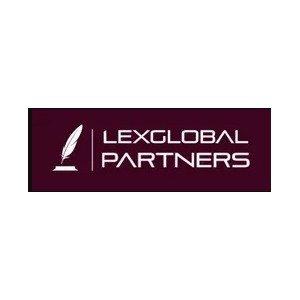Best General Litigation Lawyers in Kabul
Share your needs with us, get contacted by law firms.
Free. Takes 2 min.
List of the best lawyers in Kabul, Afghanistan
About Litigation Law in Kabul, Afghanistan
Litigation in Kabul, Afghanistan involves the process of taking legal action in civil disputes, where the parties resolve their issues in court. The country follows a mixed legal system with influences from civil, sharia, and customary law. The judiciary in Afghanistan comprises several levels, including district courts, provincial courts, and the Supreme Court, which is the highest legal authority. Owing to the ongoing development of the legal framework and the historical importance of customary laws, litigation processes can be complex, making it imperative to seek professional legal advice.
Why You May Need a Lawyer
There are numerous scenarios where you might require a lawyer for litigation in Kabul. Some common situations include disputes over property rights, breach of contracts, family law issues such as divorce or custody, business conflicts, or personal injury claims. Lawyers are beneficial in navigating the legal system, understanding your rights, filing paperwork, and representing your case in court. They can provide strategic advice and seek the most favorable outcomes for their clients.
Local Laws Overview
Key legal frameworks relevant to litigation in Kabul are influenced by both the Afghanistan Constitution and Islamic law. The formal judicial system sets out rules for civil procedures and the adjudication of disputes. Family law, inheritance, and contract enforcement are areas where sharia law typically plays a significant role. Additionally, circumstances unique to Afghanistan, such as land ownership issues, are common subjects of litigation. It is crucial to recognize that local customs and tribal laws might also impact legal proceedings, especially in rural areas outside of Kabul.
Frequently Asked Questions
How can I find a reliable lawyer in Kabul?
It's advisable to seek referrals from friends or colleagues and look into lawyers recommended by respected legal associations. Verify the lawyer’s credentials, experience, and focus area of practice.
What is the procedure to file a lawsuit in Kabul?
The procedure generally involves filing a complaint in the relevant court, serving notice to the opposing party, conducting a pre-trial, and then proceeding to trial if necessary. Representation by a legal professional can greatly facilitate this process.
Are there any alternative dispute resolution options available?
Yes, options such as mediation, arbitration, and customary forums like jirgas or shuras might be considered for a faster or community-based resolution.
How long does a typical litigation process take?
Depending on the complexity and nature of the case, litigation can take several months to a few years. The efficiency of the court handling the case is also a determining factor.
What are the court fees involved in filing a lawsuit?
Court fees can vary based on the type and value of the case. It's best to consult with a lawyer for an accurate estimate of applicable fees.
Can I represent myself in a court case?
While it is legally possible to represent yourself, it is generally not advisable due to the complexity of legal procedures and potential disadvantages against experienced legal representatives.
How is a judgment enforced in Kabul?
Once a judgment is made, enforcement can require further legal steps, such as obtaining orders for money judgments or property seizure, often supported by legal action if compliance is not forthcoming.
What role does sharia law play in litigation?
Sharia law can play a significant role, especially in personal matters related to family law, inheritance, and sometimes financial disputes. It complements civil law within the Afghan legal system.
What should I do if I am not satisfied with a court decision?
You may have the option to file an appeal, which must be submitted within a specific timeframe post-judgment. Legal advice is crucial to navigate the appellate process.
Is foreign legal advice applicable in Afghan courts?
While international law might impact certain aspects, Afghan courts primarily rely on local and sharia laws. Therefore, consulting a lawyer familiar with the Afghan legal landscape is recommended.
Additional Resources
For additional assistance, consider the Ministry of Justice of Afghanistan for governmental resources, the Afghanistan Independent Bar Association for accredited lawyers, or various NGOs offering legal support. International legal aid organizations operating in the region might also offer guidance.
Next Steps
If you require legal assistance, begin by identifying the nature of your legal issue and seek out a professional lawyer with experience in that area. Gather necessary documentation and schedule consultations to discuss your case. Ensure you analyze any retainer agreements carefully before engaging legal services, keeping in mind the critical role of understanding both local and national legal landscapes in effectively managing litigation in Kabul.
Lawzana helps you find the best lawyers and law firms in Kabul through a curated and pre-screened list of qualified legal professionals. Our platform offers rankings and detailed profiles of attorneys and law firms, allowing you to compare based on practice areas, including General Litigation, experience, and client feedback.
Each profile includes a description of the firm's areas of practice, client reviews, team members and partners, year of establishment, spoken languages, office locations, contact information, social media presence, and any published articles or resources. Most firms on our platform speak English and are experienced in both local and international legal matters.
Get a quote from top-rated law firms in Kabul, Afghanistan — quickly, securely, and without unnecessary hassle.
Disclaimer:
The information provided on this page is for general informational purposes only and does not constitute legal advice. While we strive to ensure the accuracy and relevance of the content, legal information may change over time, and interpretations of the law can vary. You should always consult with a qualified legal professional for advice specific to your situation.
We disclaim all liability for actions taken or not taken based on the content of this page. If you believe any information is incorrect or outdated, please contact us, and we will review and update it where appropriate.








